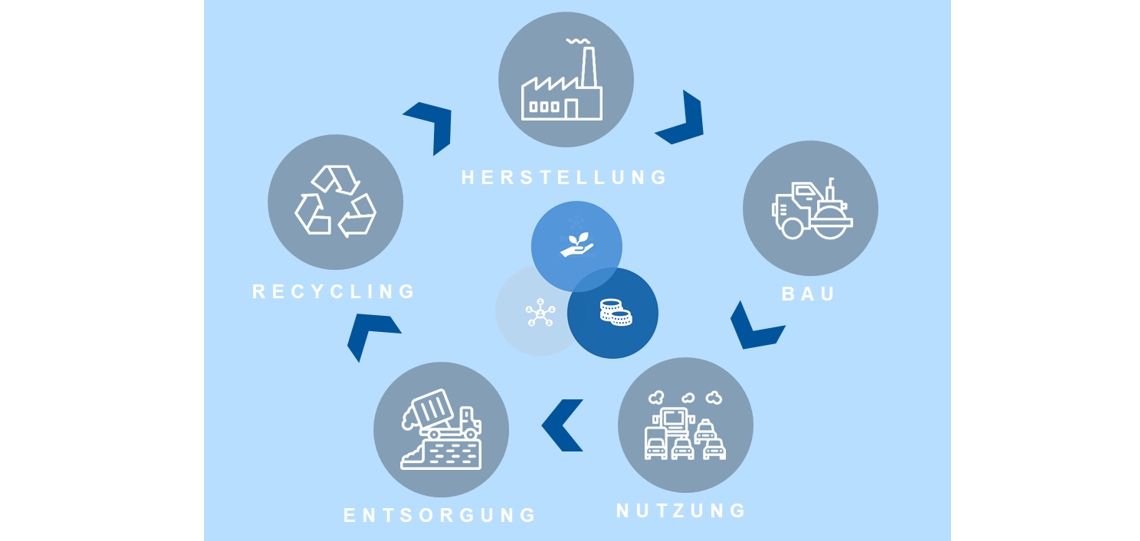28. June 2023
In the consortium project „Sustainability assessment of transport infrastructure out ouf town“ the CBI will work together with the DGNB, Hochtief, Echterhoff, Heitkamp and Nesseler to develop findings on the sustainability assessment of road construction infrastructure. These findings will later lead to holistic sustainability criteria that will be incorporated into a certification system for sustainable transport infrastructure. Scientific support for the project is being provided by the Institute of Sustainability in Civil Engineering und dem Institute of Highway Engineering of the RWTH Aachen University. In addition, the project is supported by Autobahn GmbH.
Project decription:
Climate change is a major challenge, both internationally and nationally. In this context, the EU has set ambitious targets such as reducing greenhouse gas emissions by at least 50% by 2030 and carbon neutrality in 2050, so there is an acute need for action to achieve these goals.
The construction sector not only has a major impact on the economy and society, but also on the environment, e.g. through the generation of emissions and waste and the consumption of resources. Within the construction sector, road infrastructure plays a central role in achieving the European and German sustainability goals.
Although the sustainability assessment of infrastructures is not a new subject area, it has not yet been implemented in the field of road infrastructure in Germany. International studies also show that there is as yet no uniform approach to the definition and application of scientifically based sustainability criteria for transport infrastructure.
Currently, various stakeholders have shown interest in applying a system to design, build, and operate more sustainable highways. However, there is not yet a system that allows a fair comparison of possible paving alternatives over the entire life cycle and takes into account the most important aspects of transportation infrastructure projects.
The aim of this project is to define holistic sustainability criteria for transport infrastructure. These criteria are to encompass the three pillars of sustainability, environment, economy and social issues. The first step is to lay the foundations for the assessment by defining a single functional unit and uniform system boundaries. Case studies are then defined to identify environmental, financial, and social hotspots. Hotspots are processes that have the greatest impact on the sustainability performance of different project types. These hotspots will be used to identify specific criteria to be incorporated into the evaluation and certification of road projects.






